Marc Silber's Blog, page 6
June 5, 2020
Portrait Photography Tips and Tricks to Improve Your Photography with Bambi Cantrell Ep 33
Bambi Cantrell is one of the world’s most decorated and sought after professional photographers of our time. Bambi one of the elite Nikon Ambassadors, and was a recipient of the prestigious Triple Master of Photography awarded by Wedding Portrait Photographers International in 2016. In 2015 Ms Cantrell was awarded the highly desired, Triple Scoop Music Vision Award. Bambi Cantrell was named “The “most influential photographer of the year” Photo Focus online magazine. 2014 In 2007 she was named “One of the 10 BEST wedding photographers in the world” by American Photo Magazine and in 2009 she was the first woman to be honored with the prestigious “Golden Eye” award from the Russian Federation of Professional Photographers. –-2004 Ms Cantrell was named “Icon of Imaging” by Microsoft Corporation.
Show Notes
Important Links
Use our link here to get 25% off your next Bay Photo order.
Connect with Bambi Cantrell
Website | Instagram | Twitter
Connect with Marc Silber
Website | Instagram | Facebook | Twitter | YouTube
Buy Create book here
Check out our merchandise
The post Portrait Photography Tips and Tricks to Improve Your Photography with Bambi Cantrell Ep 33 appeared first on Advancing Your Photography.

Photography Myth Busting feat. Documentary Photographer Daniel Milnor Ep 32
Daniel Milnor spent twenty-five-years as a full-time photographer but is currently “Creative Evangelist” for Blurb, Inc. the world’s premiere print-on-demand publishing platform. He splits his time between the smog-choked arteries of Southern California and the spiritual landscape of New Mexico where he’s been known to hike, paddle, climb, ski, ride and explore all the spaces in between. Milnor is a complete and total nonbeliever in social media and feels these platforms have done irreparable damage to human communication skills and attention span while unleashing a level of consumerism the planet simply cannot survive.
He currently works on a project-by-project basis with clients who are willing to spend the time required to create original artwork as opposed to trendy or temporary content. He also works as a creative adviser for companies with a story to tell. Milnor has taught at Art Center College of Design, Academy of Art University, The Santa Fe Photographic Workshops, The Los Angeles Center for Photography and the Photo Experience Workshops in Latin America. An early adopter of select technologies such as print-on-demand books and magazines, Milnor has created and published over two hundred unique titles.His work is in the collections of The Los Angeles County Museum of Art, The George Eastman House and The Santa Barbara Museum of Art. He has lectured on photography and bookmaking in the United States, Europe, Canada, Latin America and Australia.
Show Notes
Important Links
Use our link here to get 25% off your next Bay Photo order.
Connect with Daniel Milnor
Website | Twitter
Connect with Marc Silber
Website | Instagram | Facebook | Twitter
Buy Create book here
Check out our merchandise
The post Photography Myth Busting feat. Documentary Photographer Daniel Milnor Ep 32 appeared first on Advancing Your Photography.

May 28, 2020
Secrets to Portrait Photography, Directing Subjects and Squinching feat. Peter Hurley Ep 31
Peter Hurley is the premier headshot and portrait photographer in New York City. He’s best known for the genuine expressions he captures for his executive business portraits and actor’s headshots. He uses his experience behind and in front of the camera to capture genuine expressions from his subjects. He also founded The Headshot Crew, the world’s largest network of headshot and portrait photographers.
Show Notes
Squinch: Narrowing the distance between your your lower eyelid and pupil. This creates a confident look.
Laughing causes a person to squinch.
The key to getting a good smile from your subject is to create a genuine smile.
You need to practice and study working with subjects just as much as taking the photo itself.
You need to learn how to direct lots of different subjects from different backgrounds.
Direction by misdirection: Take the power away from the camera and have them focus on you.
Hurlyisms are phrases that don’t really mean much but help redirect the focus of your target from the camera.
If you want to be a portrait photographer, you have to learn how to work with people.
Always find the good side of your subject, and this applies to any subject.
You have to be comfortable and confident about your use of hurlyisms.
People Mentioned
Resources
The Headshot
Important Links
Connect with Peter Hurley
Website | Instagram | Facebook | Twitter | YouTube
Connect with Marc Silber
Website | Instagram | Facebook | Twitter | YouTube
Join the Good Karma Team to help build up the community!
Check out our new FREE course which gives an introduction to the Cycle of Photography!
Buy Create book here
Check out our merchandise
The post Secrets to Portrait Photography, Directing Subjects and Squinching feat. Peter Hurley Ep 31 appeared first on Advancing Your Photography.

May 27, 2020
Tell Better Stories with Your Images Using These Photojournalism Tips
Ed Kashi has long used his photography to help advocacy groups around the world. If you want tell better stories and create change with your own images as he does, then apply these photojournalism tips:
Find Your Passion
One of Ed’s the most important tips is to find out the passion behind your photography. Find out what drives you to pick up your camera. Go out there, be curious and learn about the world. Find out what you truly care about and what stirs your passion. These are the things that you need to figure out to be able to tell better stories.
Engage in Advocacy Work

Photo by Ed Kashi. Nguyen Thi Ly, 9, who suffers from Agent Orange disabilities, in her home in Ngu Hanh Son district of Da Nang, Vietnam on July 9, 2010.
Find issues or social causes you can engage with. There’s an edge and a real point when doing advocacy work. It makes you feel honored to be part of a certain organization’s effort to make a difference. Engaging in advocacy work will help you shine a light on an issue you want to facilitate change. Doing this will give you the opportunity to be part of the tremendous change with the kind of stories that your photographs could tell.
Have Great Partners
Once you decide to engage in any kind of advocacy work, make sure you choose who you work with wisely. Create the change that you want by working with the right organizations and partners. Look for organizations with causes and platforms that you can relate with.
Limit the Variables
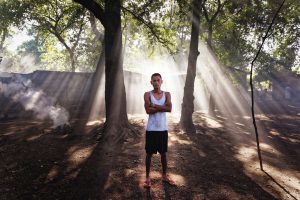
Photo by Ed Kashi. Walter Arsenio Rivera, 29, who is a cane worker that suffers from CKDu, poses in Chichigalpa, Nicaragua on Jan. 7, 2014.
Photography is about variables. Learn to limit the variables that you work with so you can focus and pay attention on what matters. Eliminate less important variables and focus on what’s in front of you. There’s massive power in putting your attention on what you should really be putting it on.
Don’t Let Equipment Get in the Way
Don’t let the camera become a distraction. Interact with your subject and build that rapport. Human interaction matters. It’s not just taking the perfect shot but also about making that connection.
Don’t Miss the Simple Shot
Taking complex shots and applying technical knowledge is always a challenge. However, don’t be so consumed in getting that complex shot that you forget about what the story is all about. The essence of your story in an image should still be there.
Engage in Narrative Photography
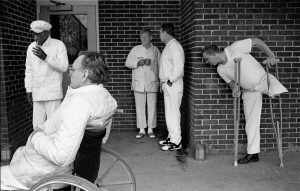
Photo by Ed Kashi. Inmates at the Hamilton Aging and Infirmed facility gather to smoke in the designated outdoor smoking area.
There are four images that are building blocks when you’re trying to be a visual storyteller. These are Environmental Portraits (images where you’re ethically allowed to direct the subject), Landscape or Sense of Place (images of what a place looks like), The Details (finding meaning about different images of inanimate objects), and Candid Moments (images that were taken with a photographer’s visual voice but no direction). Practice and work around these four kinds of images for your narratives.
These are just some photojournalism tips from Ed Kashi that you can apply to become a better storyteller in your photos. In addition, don’t forget to plan ahead before your shoots. Being prepared will help you better understand what you need to do for others to clearly see what you are trying to convey.
Learn More:
Previous Interviews:
Photography Techniques: Photojournalism Tips From Ed Kashi
Pro Lighting & Photojournalism Tips – Ed Kashi
Natural Lighting Tips, Strobe & Photojournalism Advice – Ed Kashi
The post Tell Better Stories with Your Images Using These Photojournalism Tips appeared first on Advancing Your Photography.

May 26, 2020
Take Stunning Shots Using Olympus’ Live Composite Feature
After my interview with Australia’s first professional Instagrammer “Lauren Bath”, Olympus was kind enough to send me their Olympus E-M1X Mirrorless Camera. During our interview, Lauren talked about its “Live Composite” feature and today, I’m going to talk about my experience with this camera during our first test shoot at Bixby Creek Bridge.

Photo of Sydney Opera House Taken by Lauren Bath using Live Composite
Jared (my producer) and I were blown away with the quality of the shots produced by the Olympus E-M1X Mirrorless Camera. It’s not surprising because it comes with superior resolution Olympus Pro lenses that beautifully capture stunning shots like no other. It’s also easier to move around and find the perfect spot since its packaged in a lightweight and compact system.
What I like about this camera is that I can conveniently access up to 35 commands right away. Its Customizable Menu Interface allows me to customize a variety of settings. I don’t have to dive deep in the menus just to make that happen. It’s pretty organized and can be done just by pressing specific buttons.
Live Composite
Another interesting feature worth talking about is the powerful processing of its “Live Composite” feature. This feature automatically takes continuous raw shots in a fast manner (up to 18 frames per second) with precision and composites them into one sharp Handheld 50 MP high resolution image. You can use either its electronic shutter (up to 60 fps S-AF / 18 fps C-AF) or mechanical shutter (15 fps S-AF / 10 fps C-AF). You also don’t have to worry about missing certain elements of the photo that you want to include. This camera allows you to frame particular subjects instead of focusing with its Air-Based Intelligent Subject Detection Autofocus feature.

Live Composite Shot of Bixby Creek Bridge
Another cool thing about this is that it comes with two batteries. It’s the only camera that I’ve ever had with two complete batteries. This is very useful, especially during video shoots because you have a backup. This allows you to extend your shooting time without the risk of losing your momentum even in harsh conditions. With its Weathersealed Performance and Innovative TECH features, you can definitely trust and rely on this fantastic camera’s ability to capture awe-inspiring shots even when the going gets tough. You can simply toss out your rain cover if you like as this is expertly sealed to be Splashproof, Dustproof and Freezeproof.
Test Your Equipment
Before I end this, I want to share something that can help save you from a ton of embarrassment. One of the most important things that you need to remember is to test an equipment before you go. I photographed a meeting when I was a kid but I didn’t test the equipment beforehand. It was one of the most horrifying experiences of my life because every image is unusable.
In order to eliminate your risk of failing, always keep in mind to Test Your Equipment, especially if it’s something that you’ve never used before. Just because you’re familiar with how a particular equipment works, it doesn’t mean a similar equipment works the same way.
Remember that no matter what, remember to get out and capture your own images of life!
Learn more:
Olympus E-M1X Mirrorless Camera
Thanks again to Olympus for sending us one of their cameras.
Lauren Bath Video: “Tips for Travel Photography and How to Grow Your Instagram Account with Photographer Lauren Bath”
The post Take Stunning Shots Using Olympus’ Live Composite Feature appeared first on Advancing Your Photography.

May 22, 2020
Lighting and Composition Tips from Travel Photographers Bob Holmes and Andrea Johnson Ep 30
Robert Holmes career as one of the world’s most successful and prolific travel photographers has extended over 35 years. He was the first photographer to be honored twice by the Society of American Travel Writers with their Travel Photographer of the Year Award and he is the only photographer to be given the award 5 times, most recently for 2017.
About Andrea Johnson
Andrea Johnson is a photographer and director specializing in the wine, agriculture, and adventure travel industries. With a base in Portland, Oregon surrounded by abundant natural beauty, she has traveled the globe creating custom photography image libraries, magazine stories, documentary films, video campaigns, and leading photography tours.
Show Notes
Look at your images very critically.
You need to know how your camera reacts to different light qualities.
There are a lot of sacrifices you have to make as a photographer.
If conditions aren’t right, be active and move your subject around.
You need to be prepared and think ahead.
Find ways to make your shot work for the lighting that you have.
Know what kind of lighting you want so you can be ready to take it when the lighting appears.
Dawn light is much cleaner, and water will be stiller. Be aware of the differences between different times of day.
Look at your histogram to get lighting right on portraits.
Shoot in RAW.
All photography is manipulation, it just depends on what kind and how much manipulation you do.
Staying in the same place for days at a time is a great way to learn about light.
The more frequently you go back to a place, the better photos you will take.
Featured Images
.fusion-gallery-1 .fusion-gallery-image {border:0px solid #f6f6f6;}





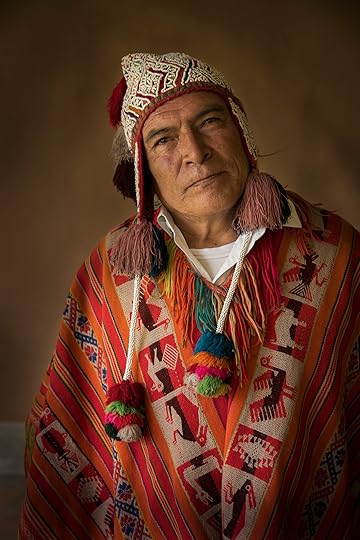
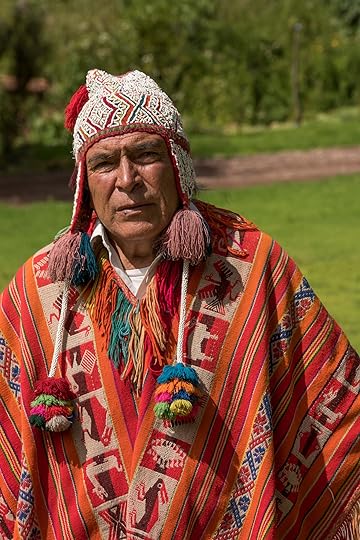


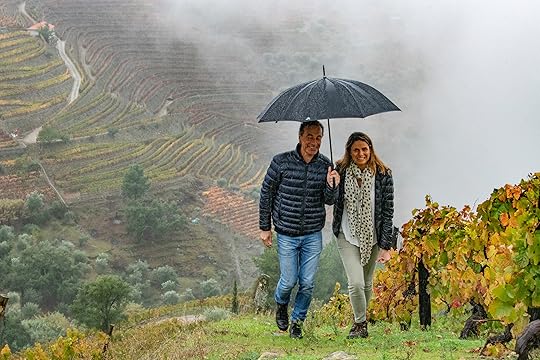
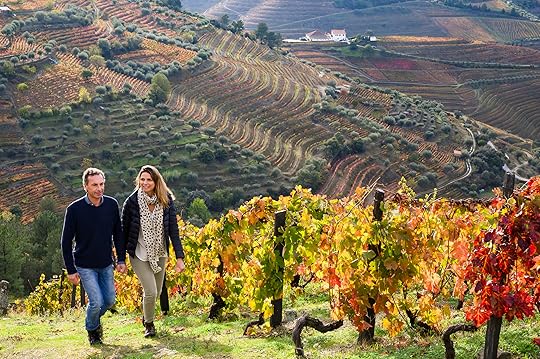



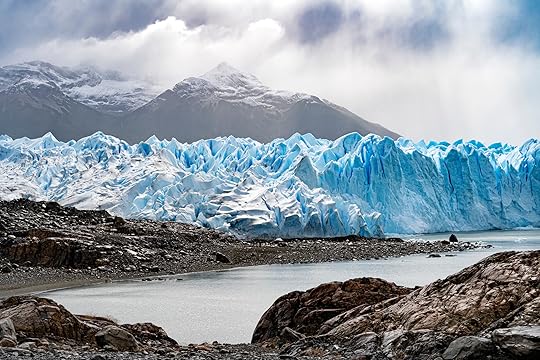
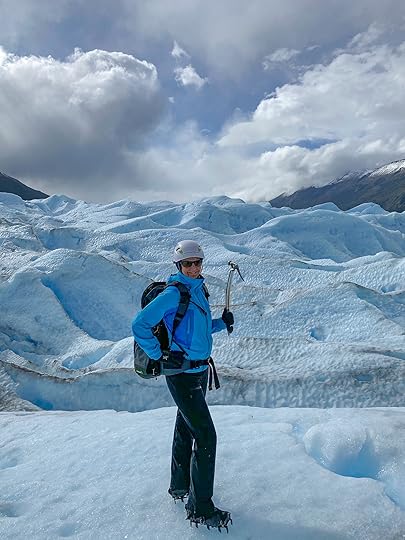



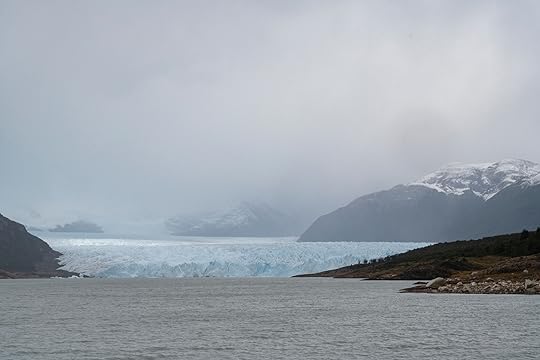
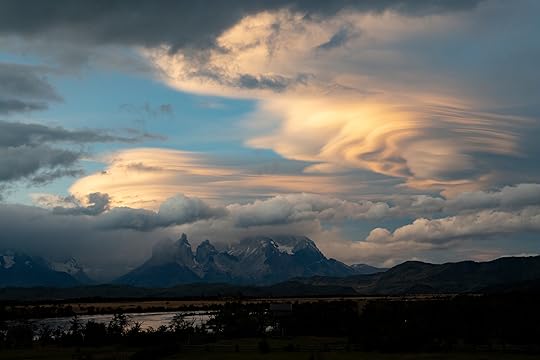
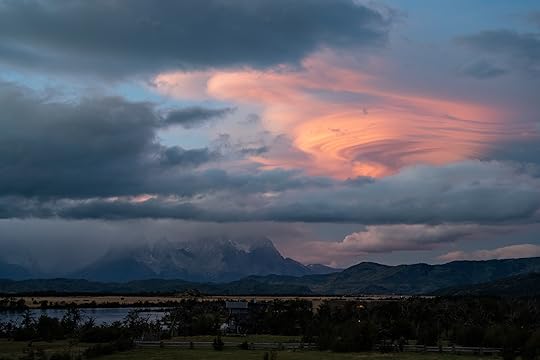

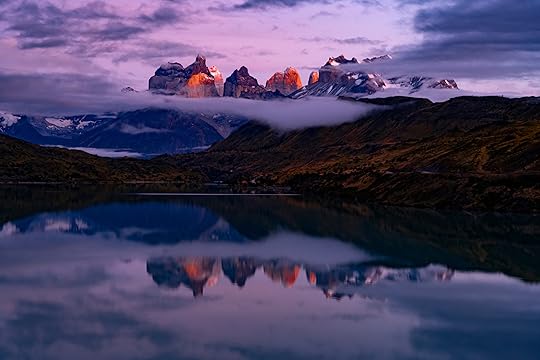
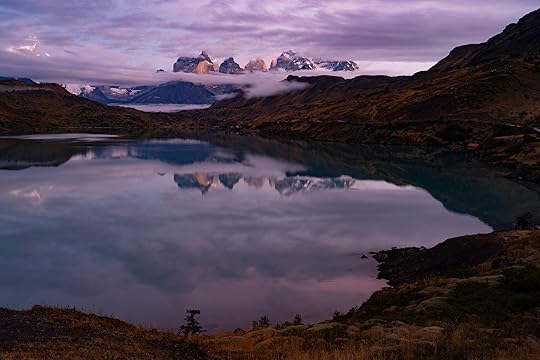
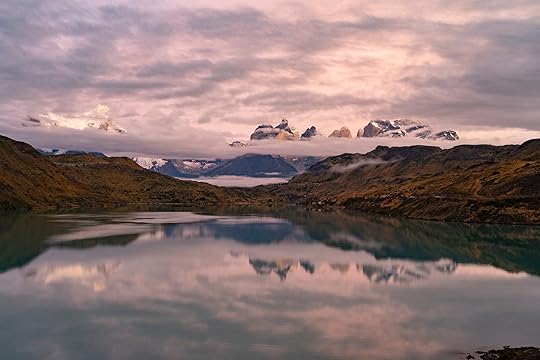

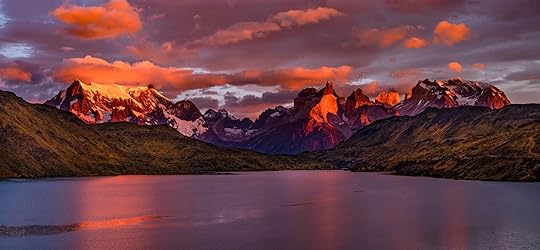

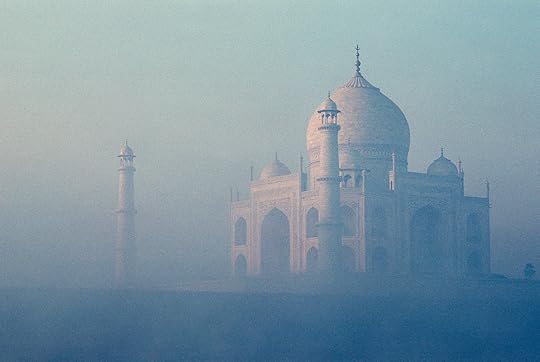






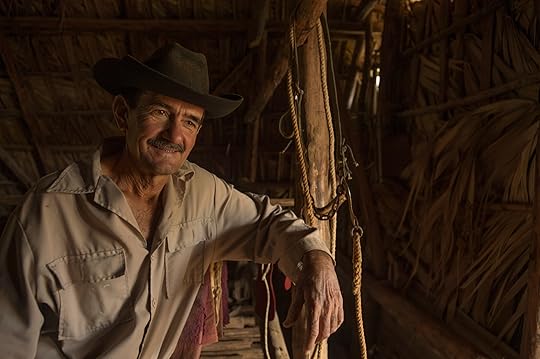 Important Links
Important LinksUse our link here to get 25% off your next Bay Photo order.
Connect with Bob Holmes
Website | Instagram | Facebook | Twitter
Connect with Andrea Johnson
Website | Instagram | Facebook | Twitter
Find out more about Bob Holmes new Online Class
Connect with Marc Silber
Website | Instagram | Facebook | Twitter | YouTube
Check out our new FREE course which gives an introduction to the Cycle of Photography!
Buy Create book here
Check out our merchandise
The post Lighting and Composition Tips from Travel Photographers Bob Holmes and Andrea Johnson Ep 30 appeared first on Advancing Your Photography.

May 21, 2020
How Photographer and Lightroom Expert Scott Kelby Creates Stunning Images Ep 29
Scott is the President and CEO of KelbyOne, is also the original “Photoshop Guy”, is the editor and publisher of Photoshop User Magazine, Conference Technical Chair for the Photoshop World Conference, Training Director and instructor for KelbyOne Live Seminars, and author of a string of bestselling technology and photography books.
Show Notes
Have an intent when you go out to take photos. It’s not “just luck.”
Ask yourself, “What do I want to do? How do I want to make it?”
Be patient and be ready for the split second opportunity you might have.
At tourist locations, get up early to get to locations before it gets busy.
To get GPS data on photos from a camera without GPS, take a photo using your iPhone to get the GPS data.
Just use one catalog in Lightroom.
If Lightroom is running slowly, you might want to try optimizing your catalog or change your catalog settings for how long you store large preview files.
Photographers often overthink aspects of photos that the general public doesn’t.
Stop messing with the technical aspect of photography, focus on capturing a beautiful moment.
Mentioned People
Featured Images
.fusion-gallery-1 .fusion-gallery-image {border:0px solid #f6f6f6;}


 Important Links
Important LinksUse our link here to get 25% off your next Bay Photo order.
Connect with Scott Kelby
Website | Instagram | Facebook | Twitter | YouTube | KelbyOne
Connect with Marc Silber
Website | Instagram | Facebook | Twitter | YouTube
Buy Create book here
Check out our merchandise
The post How Photographer and Lightroom Expert Scott Kelby Creates Stunning Images Ep 29 appeared first on Advancing Your Photography.

May 13, 2020
Landscape Photography Composition Tips feat. Mads Peter Iversen Ep 28
Mads Peter Iversen is a photographer living in Aarhus. An educated schoolteacher with a master degree in educational philosophy. After trying out other photography genres, such as headshot photography and commercial videography with great success, he settled on fine art landscape pictures.
Show Notes
Keep an open mind and be willing to adjust to the weather.
Think in geometrical shapes to find pleasing composition.
Adding a person into the photo adds an adventurous feeling, but more importantly gives a sense of scale to your image.
See what others are doing, and how you can put your own style on it.
Take images with a range of settings so you have options when you return to the studio.
Be prepared for the locations that you are going to and understand any dangers you might face.
The “Rule of Thirds” is only one small point of photography composition and if you focus too much on it, you can ignore other compositional aspects which will destroy the image.
Forcing a particular composition rule into a photo that just doesn’t have it can be a waste of time.
Do the kind of photography that you enjoy doing. Learn from others, but make sure you’re having fun!
Resources
How to Photograph Northern Lights
Mads Peter Iversen’s Newsletter
Mentioned People
Featured Images
.fusion-gallery-1 .fusion-gallery-image {border:0px solid #f6f6f6;}
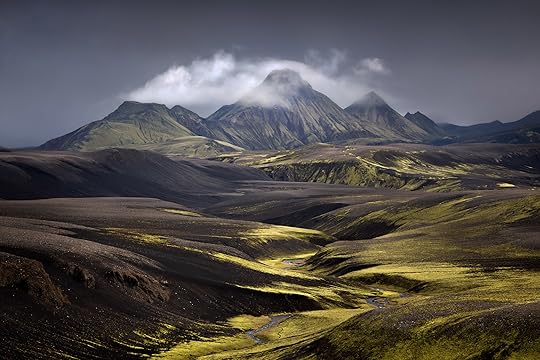

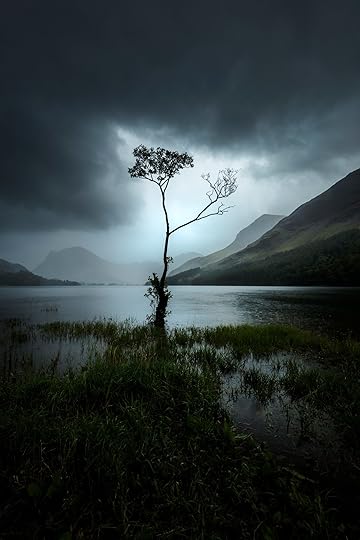
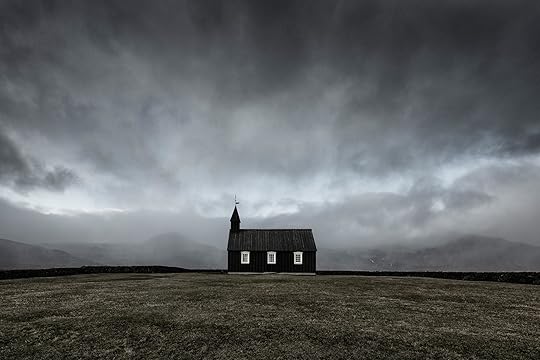
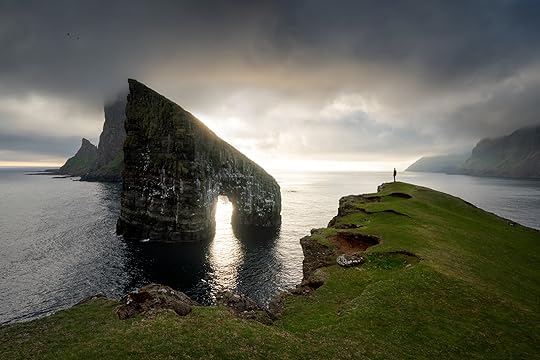
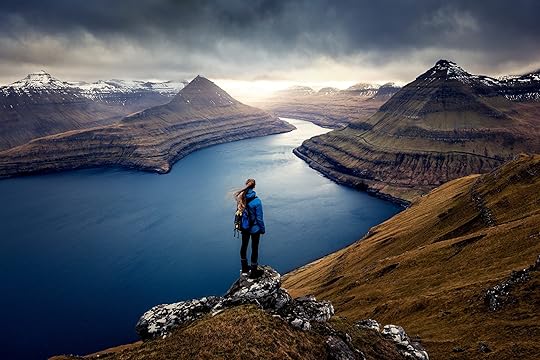
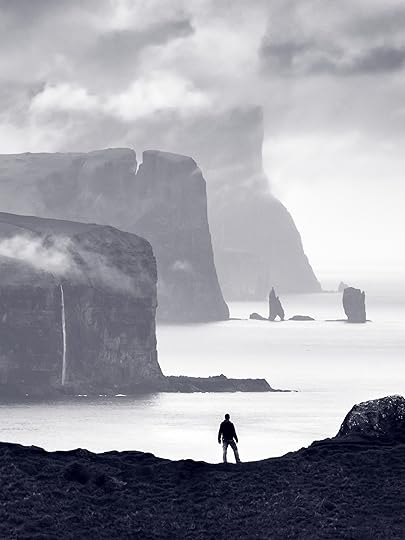
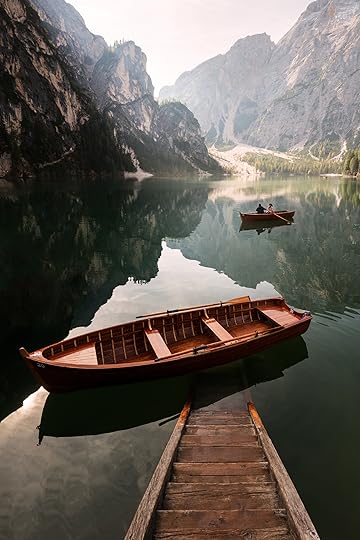
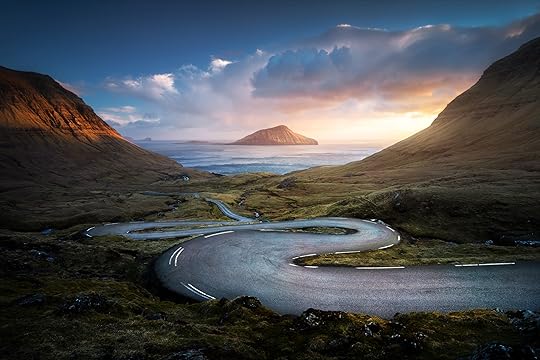
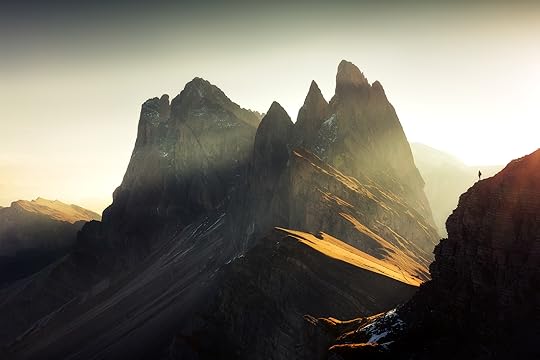
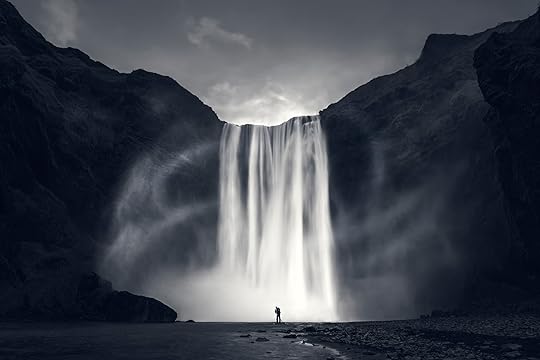 Important Links
Important LinksUse our link here to get 25% off your next Bay Photo order.
Connect with Mads Peter Iversen
Website | Instagram | Facebook | YouTube
Connect with Marc Silber
Website | Instagram | Facebook | Twitter | YouTube
Buy Create book here
Check out our merchandise
The post Landscape Photography Composition Tips feat. Mads Peter Iversen Ep 28 appeared first on Advancing Your Photography.

May 11, 2020
How a Photojournalist Tells Stories Through Photography feat. Deanne Fitzmaurice Ep 27
As a Pulitzer Prize-winning editorial and commercial photographer, San Francisco-based Deanne Fitzmaurice is most known for her unique ability to go behind the scenes to discover and convey personal, intimate and emotional stories through images. Fitzmaurice, a Nikon Ambassador, is an assignment photographer with publications including Sports Illustrated, ESPN, National Geographic and many other respected outlets. Deanne has also partnered with foundations and non-profits including the Bill and Melinda Gates Foundation and the Lucile Packard Foundation. Deanne’s commercial clients include Apple, Nike, Google and Facebook.
Show Notes
Building relationships with people is key.
Photojournalism, Documentary, and Street photography are often interchangeable and overlapping, though do tend to lend themselves to particular kinds of projects:
Documentary tends to lend itself to longer term projects.
Photojournalists tend to lend themselves to assignments and journalistic ethics.
Street photography tends to be walking the streets and seeing what unfolds.
When you look at the scene in front of you, look at potential foregrounds and backgrounds.
Spending time in a location can help you become invisible.
Sometimes you can take an assignment that calls to you, and sometimes you can find a project and pitch it to turn it into an assignment.
You have to care about the projects you want to document if you want others to care.
Don’t rush a photo, spending time on a photo can help you make a photo you think will be great even better.
If you need to take better photos, put yourself in front of more interesting situations.
Mentioned People
Featured Images
.fusion-gallery-1 .fusion-gallery-image {border:0px solid #f6f6f6;}
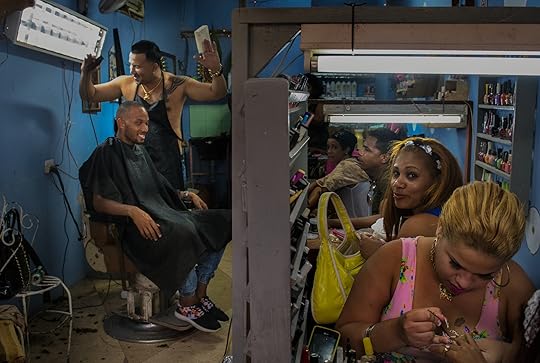
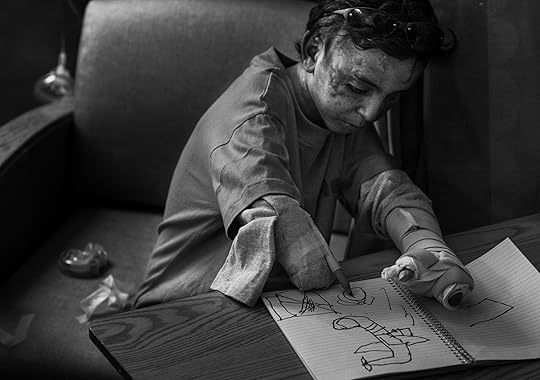
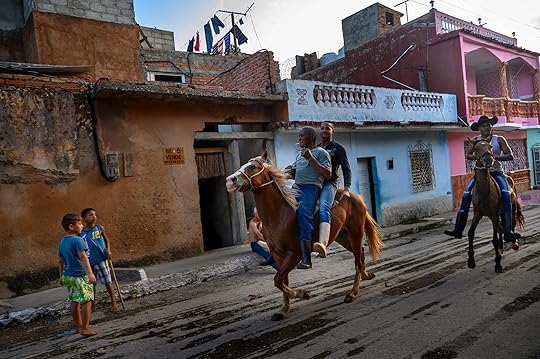

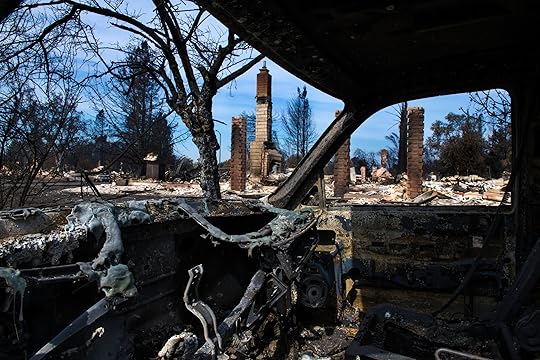
 Important Links
Important LinksUse our link here to get 25% off your next Bay Photo order.
Connect with Deanne Fitzmaurice
Website | Instagram | Facebook | Twitter
Connect with Marc Silber
Website | Instagram | Facebook | Twitter | YouTube
Buy Create book here
Check out our merchandise
The post How a Photojournalist Tells Stories Through Photography feat. Deanne Fitzmaurice Ep 27 appeared first on Advancing Your Photography.

May 9, 2020
The Power of Shooting with One Camera feat. Marc Silber + Q&A Ep 26
It’s good to let someone else edit (look through, not process) your work.
Find something you’re passionate about.
Get fully involved.
The soul of photography is in prints.
Featured Images
.fusion-gallery-1 .fusion-gallery-image {border:0px solid #f6f6f6;}
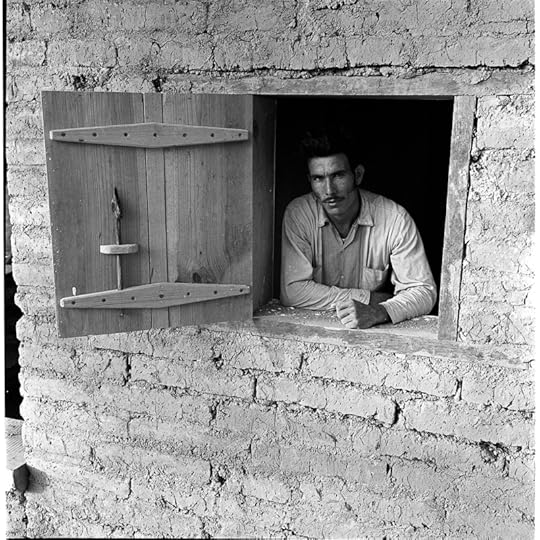
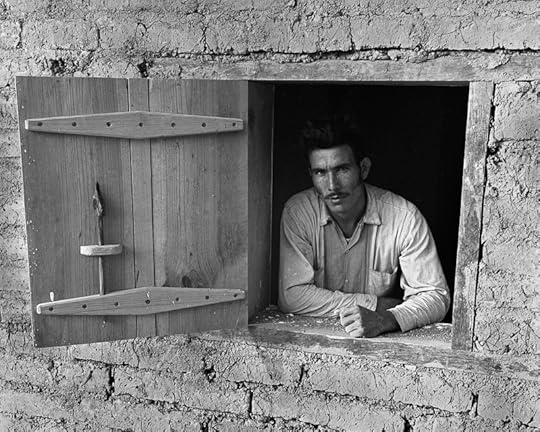





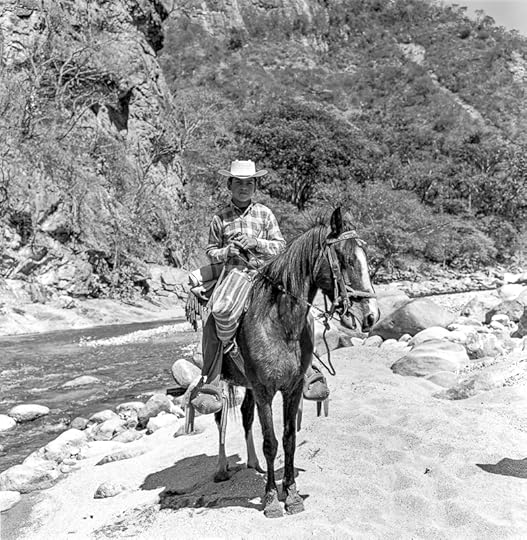






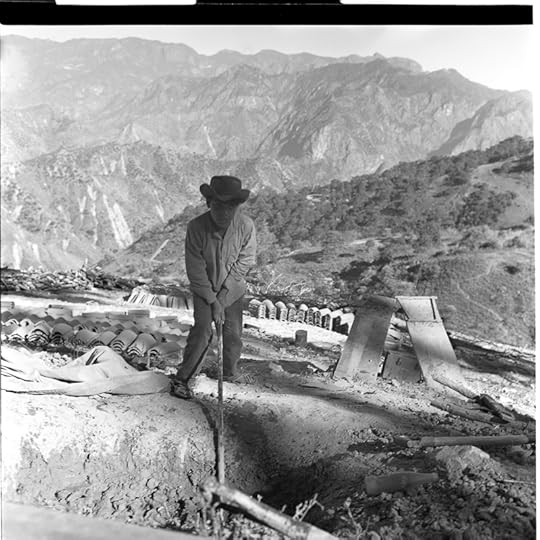
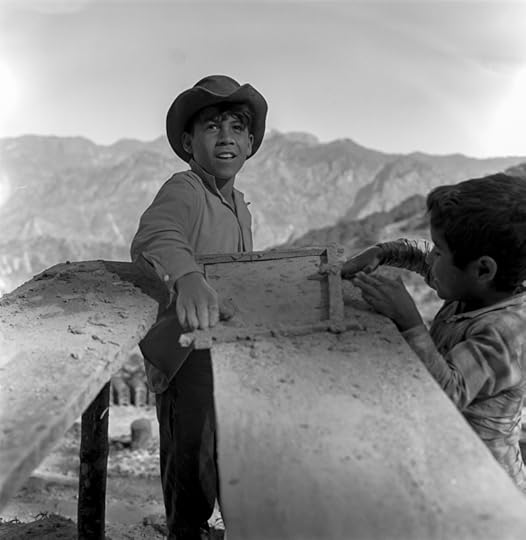
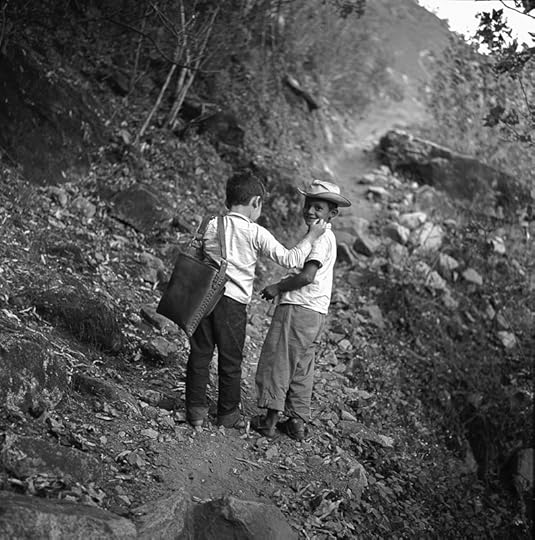 Important Links
Important LinksGet 25% off your next Bay Photo order!
Connect with Marc Silber
Website | Instagram | Facebook | Twitter | YouTube
Join the AYP Club and become part of the community!
Check out our new FREE course which gives an introduction to the Cycle of Photography!
Buy Create book here
Check out our merchandise
The post The Power of Shooting with One Camera feat. Marc Silber + Q&A Ep 26 appeared first on Advancing Your Photography.




